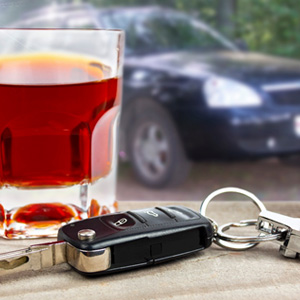What Happens At The Station During A DWI Arrest?
 Once arrested, police bring the arrested individual to the police station, where the individual is either handcuffed to a bench or placed in a cell. Officers must then observe the individual for at least 20 minutes to ensure there is no burping, belching, vomiting, or ingestion of anything as these actions can contaminate and compromise the breath test. After the observation period, the individual is asked to provide breath samples, usually two. The breath samples must meet specific volume and duration requirements.
Once arrested, police bring the arrested individual to the police station, where the individual is either handcuffed to a bench or placed in a cell. Officers must then observe the individual for at least 20 minutes to ensure there is no burping, belching, vomiting, or ingestion of anything as these actions can contaminate and compromise the breath test. After the observation period, the individual is asked to provide breath samples, usually two. The breath samples must meet specific volume and duration requirements.
What Are The Potential Problems With The Evidential Breathalyzer Process And Equipment That Can Be Used In My Defense?
Problems with the breathalyzer process and equipment can include contamination, dental conditions arising from the presence of dentures, bridgework, braces, Invisalign®, and other things that retain alcohol, electronic interference, or issues with the foundational prerequisites for breath testing. Other potential issues are incorrect documentation, uncertified officers operating the equipment, and the general reliability of the breath test as a proxy for blood alcohol content. Such issues can affect the breath test result and lead to its possible exclusion from evidence at trial.
After The Suspended Driving License Period Has Passed, Is My License Automatically Reinstated?
Your license will not be automatically reinstated after the suspension period has passed. You will have to go to the Motor Vehicle Commission, pay a $100 restoration fee, and show proof that you’ve installed the alcohol ignition interlock device. Once you do those things, you will initially get a restricted driving privilege if you are a first-time offender. That is, you’re going to be limited to driving that vehicle equipped with the interlock.
After the time passes, your privilege will automatically revert to full driving privileges without the restriction, assuming you have complied with the interlock installers payment and monitoring requirements and you have not violated the 0.08 breath alcohol level that triggers a violation that must be addressed by the municipal court. At that point, it is recommended that you go to the Motor Vehicle Commission and obtain a new physical driver’s license because your other one will have the interlock restriction imprinted on it.
While you aren’t required to do this, no one wants to be pulled over for something innocuous like speeding and have a cop see “interlock required” and potentially give you another ticket that could expose you to a one-year loss of license. You would win the charge, but you’d still have to deal with defending it. You can prevent this by paying $18 for a new physical license.
In addition, if you refuse a breath test you will be billed for surcharges or taxes of $3,000, payable over three years. There are also safe driving surcharges of between $525 and $675. Those are also paid off over a three-year period, as well. While this is a lot of money, most people seem to be able to accommodate it because it’s stretched out over a long period.
If I Have A Prior DWI Conviction, Can I Have Them Overturned Or Nullified So That They Do Not Affect A Current Arrest?
In certain circumstances, you can challenge the viability of a prior DWI conviction through a process called post-conviction relief. Unlike the initial charge where the state has the burden of proving guilt beyond a reasonable doubt, in post-conviction relief proceedings, you, the defendant, have the burden of establishing a basis on which to vacate the plea by a standard of proof called a preponderance of the evidence. A preponderance of the evidence means that, more likely than not, you are not guilty.
Four common reasons to vacate a conviction are…
Inadequate factual basis
When you plead guilty, you must tell the judge what it is that makes you guilty and, if that did not happen, that’s a reason to vacate a plea. We don’t want to have innocent people convicted.
Ineffective assistance of counsel
There may have been something pretty obvious that the attorney overlooked or failed to do that improperly led to the conviction. That’s a pretty high bar to establish but it does happen. I have reviewed cases where the facts just didn’t make out guilt, but the defense attorney was simply too lazy to investigate or even bother with building a defense.
Invalid calibration of a breath testing instrument
Between 2008 and 2016, there were more than 20,000 people who submitted breath samples into Alcotest instruments that were improperly calibrated. If your case involved one of these breath test results, you could be eligible to challenge that conviction, even if the breath test result was excluded at the time of a guilty plea.
No advice of consequence of a guilty plea
While judges are charged with advising you of consequences, they don’t necessarily have to advise you of all the consequences. You may have gone through the process without an attorney. In a case like that, failure to advise of consequences is more significant. The quality of the judiciary has improved greatly over the years, however. The training has improved so that errors like these are less frequent in more recent cases than in older cases.
The rules concerning post-conviction relief require that such petitions be made within five years of the date of conviction. However, there is case law permitting a person to file more than five years later if they can show a good reason for doing so. There is no time limit if the plea was based on a breath test result involving an improperly calibrated instrument
One of the factors that a court must weigh is how prejudiced the state would be in pursuing a prosecution should they reopen the case. When you’re looking for post-conviction relief, generally the relief you’re seeking is to vacate the entire prior conviction and start over. In other words, the state would have to retry you if the post-conviction relief petition is granted.
As you can imagine, cops retire, memories fade, and evidence gets lost over the years. If you do get a conviction vacated, you have a little better shot to win that case if it’s reopened. There are circumstances where judges may give very limited relief rather than reopening the case. For example, the judge might grant that the prior conviction can’t be used to enhance a jail sentence.
For a first offense, there’s a possible jail sentence of 30 days that is almost never imposed. Only very serious first offenses result in jail time. I’ve had two such cases: one resulting in a fatality and one resulting in a serious head injury to the other driver in an accident. Otherwise, I’ve never seen a first-time offender go to jail. So, even though jail time is authorized by statute, practically speaking, it doesn’t really mean much.
There is mandatory jail for second offenders that is no less than two days and no more than 90 days. If you get a two-day jail term, judges will generally convert that to something called the Intoxicated Driver Resource Center (IDRC)—i.e., you will have to spend 48 hours in a dormitory-like setting with others similarly situated and watch movies, receive education, and get evaluated–so it isn’t really “jail.”
For more information on the Aftermath Of A DWI Arrest In New Jersey, an initial consultation is your next best step. Get the information and legal answers you are seeking by calling (732) 218-9090 today.

